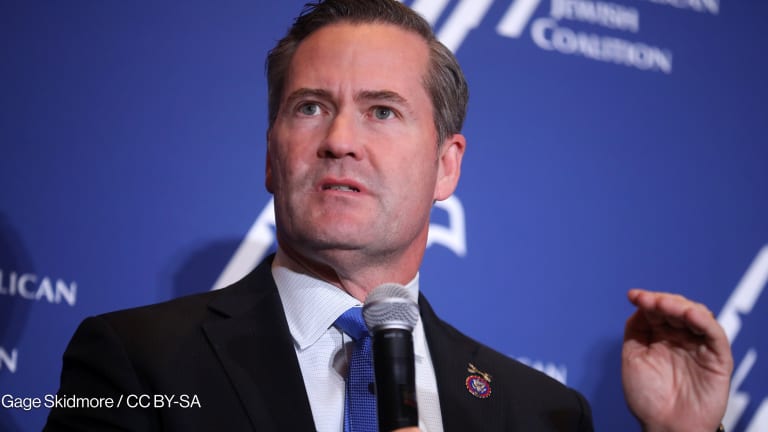
UNITED NATIONS — Humanitarian work is designed to be apolitical, but in some cases, like in Gaza and the West Bank, it is nearly impossible to disentangle relief operations from current affairs.
Officials at the U.N. Relief and Works Agency for Palestinian Refugees in the Near East know all too well that politics can wreak havoc on their work and long-term strategy, after the U.S. cut funding to the organization last year, eliminating the agency’s biggest donor.
More on UNRWA:
► UN Palestinian agency considers new approach to overcome US funding cuts
► UN Palestinian aid agency 'at bare bones' after US cuts
► Why NGOs cannot fill the gap funding cuts to UNRWA will create
Ahead of a funding conference at U.N. headquarters on June 25, the directors of UNRWA’s operations in the West Bank and Gaza convened in New York for meetings with member states. Leading humanitarian and development work in Gaza and the West Bank comes with a particular set of challenges, explained Matthias Schmale, the director at UNRWA Gaza, and Gwyn Lewis, the director at UNRWA West Bank.
In an interview with Devex, Schmale and Lewis offered a window into what makes their jobs so unique.
It’s impossible to escape politics
Aside from the inherently political nature of its mandate to serve Palestinian refugees, UNRWA is a humanitarian relief organization that considers itself impartial in the longstanding conflict between Israel and the Palestinian territories.
“We are always caught in the middle, no matter what we say in political terms.”
— Matthias Schmale, director of operations, UNRWA GazaStill, Schmale and Lewis both describe spending significant time navigating tensions in the region.
“Part of it is being in such a polarized context. I sometimes get accused by one side of being a Nazi, which does not sit very well, being a German. And the other side is that I am a Zionist conspirator,” Schmale explained. “We are always caught in the middle, no matter what we say in political terms. One side will say you are not neutral.”
Maintaining neutrality is a “real challenge” that Schmale says he struggles with daily.
“You cannot work in these kinds of contexts … without having pragmatic relations with the duty bearers,” Schmale explained. “Israeli authorities control access to Gaza. We would not be able to bring in food for people if we didn’t have some kind of pragmatic relationship. And everyone who visits Gaza needs to interact with Hamas, for security reasons alone.”
Stress for the community equals stress for the staff — and vice versa
Most of UNRWA’s staff are Palestinians who rely on the agency for schooling, health services, and employment.
“Our staff are the community. So they not only provide services, but they have their whole families relying on this,” Lewis said, explaining that it’s not uncommon for three generations to pass through UNRWA schools. “People’s identities are tied up in it because we have been open for 70 years.”
The loss of U.S. funding over the last two years led the organization to increase class sizes, close some mental health programs, and freeze hiring, among other measures.
“What it meant was we didn't know month to month, week to week, whether we would be able to pay the salaries of our colleagues, whether the schools would remain open, whether health services would remain open, so there were incredibly huge levels of anxiety for the staff and the community,” Lewis said.
“Our staff are the community. So they not only provide services, but they have their whole families relying on this.”
— Gwyn Lewis, director of operations, UNRWA West BankFew residents are able to leave and seek work elsewhere. More than 50% of the workforce is unemployed, according to the World Bank.
“Someone has said to me, ‘You are giving us a death sentence. Taking my job and my income means I do not have any way to feed my family,’” Schmale said.
Keeping community and staff morale high is a big part of the job
Lewis spends a large amount of time each week meeting with community leaders to talk through funding decisions.
“If you do not do that, then there is an immediate reaction that this is part of the plan to close UNRWA and to deny [Palestinian] people the right of return,” she said.
Staff morale remains very low amid an uncertain future for UNRWA.
“Because everything is so politicized, if we have to make a cut or a reduction, the community does not believe that we are doing it because we have no funds. They believe we are doing it for political reasons,” she continued.
The agency is facing a credibility crisis with Palestinians that Schmale and Lewis say the agency is working to overcome.
“If you are living in what some people call an ‘open air prison,’ your horizon is also limited. They see UNRWA and they don’t meet with [U.S.] President Trump. They meet us. And we have to implement these decisions. So they blamed us for it,” Schmale explained. “I have had to say numerous times, ‘Why do you think I would be motivated to not pay you a salary if I had the money? Why would I do that … Why do you think I’m here? To cut services? No.’”








